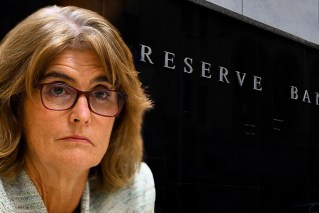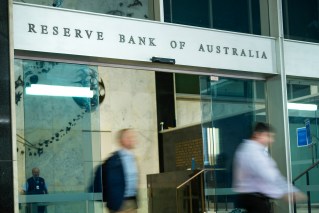Housing prices could plunge by 20 per cent in a coronavirus recession


There are many unknowns that could shape how the property market fares in a likely coronavirus-fuelled recession. Photo: TND
Economists believe it could take longer than the Coalition’s six-month coronavirus timeframe for the housing market to return to “business as usual”, as one grim prediction forecasts the potential for double -digit drops in property prices.
The claims come after Scott Morrison announced states and territories are working to limit the fallout of a coronavirus-fuelled recession in the rental market, with thousands of tenants in casual jobs expected to be laid off.
Meanwhile, the major banks have extended an olive branch to home loan customers who may struggle to maintain pace with their repayments.
Tweet from @NAB
The big four banks announced impacted customers could apply for a six-month ‘loan holiday’ on their mortgage.
AMP chief economist Dr Shane Oliver declared the government’s increasingly draconian social distancing policies would intensify plummeting transaction numbers.
But of greater concern is the threat of a recession lasting more than six months, which could see unemployment rise from the current 5.1 per cent to above 10 per cent.
“A deeper recession … risks tripping up the underlying vulnerability of the housing market around high prices and high debt levels. This could see a 20 per cent fall in prices,” Dr Oliver said.
“[This] risks resulting in a spike in debt servicing problems, forced sales and sharply falling prices. This could then feedback to weaken the broader economy as falling home prices lead to less spending.”
Property data analysis service CoreLogic said the Australian housing market has historically fared well in times of crisis, but warns the once-in-a-generation pandemic has quelled optimism around the Reserve Bank’s decision to slash interest rates to a record low 0.25 per cent.
Research principal Eliza Owen said the share market’s catastrophic month-long volatility would likely not be replicated in the housing market, given property’s illiquidity.
But Ms Owen believes there will be a downward shift in the number of transactions, if the government announces Italian-style quarantine measures.
“This may lead to postponed dwelling purchases, as housing is an expensive, high commitment purchase decision,” Ms Owen said.
“In the long term, housing market values and activity will be linked to the extent that quarantine measures affect income, employment, borrowing capacity and credit availability.”
Independent economist Saul Eslake echoed CoreLogic’s research, believing record-low interest rates would have negligible influence on the Australian property market’s fortunes.
But Mr Eslake tempered the forecasts made by Dr Oliver, suggesting lenders’ willingness to show forbearance for struggling customers signals their preparedness for a short-term pause.
Tweet from @ShaneOliverAMP
In turn, this means less forced sales, which are a driving factor in placing downward pressure on property prices in a recession.
“Banks could find if we have a lot of forced sales at bargain basement prices, it could mean that they don’t recover enough from the sales to cover the outstanding debts – and the banks themselves could be taking significant losses,” Mr Eslake said.
“Clearly, we’re not going to have big cuts in interest rates, so there’s unlikely going to be a big surge in house prices. We will see a gradual return to business as usual in terms of the volume of transactions.”
University of Tasmania economics lecturer Dr Maria Yanotti said the lack of clarity over the outbreak’s severity is prompting prospective buyers and sellers to shy away from the market.
The fears of a rise in unemployment could compel some at-risk workers to consider downsizing, but existing affordable housing shortages in major cities may give them little room to move.
“When there’s uncertainty, what we tend to do is postpone big expenses,” Dr Yanotti said.
“Sellers would be more cautious and therefore may take longer to put their property on the market or it may take them longer to sell – in worst-case scenarios, there would be adjustments in terms of price.”









